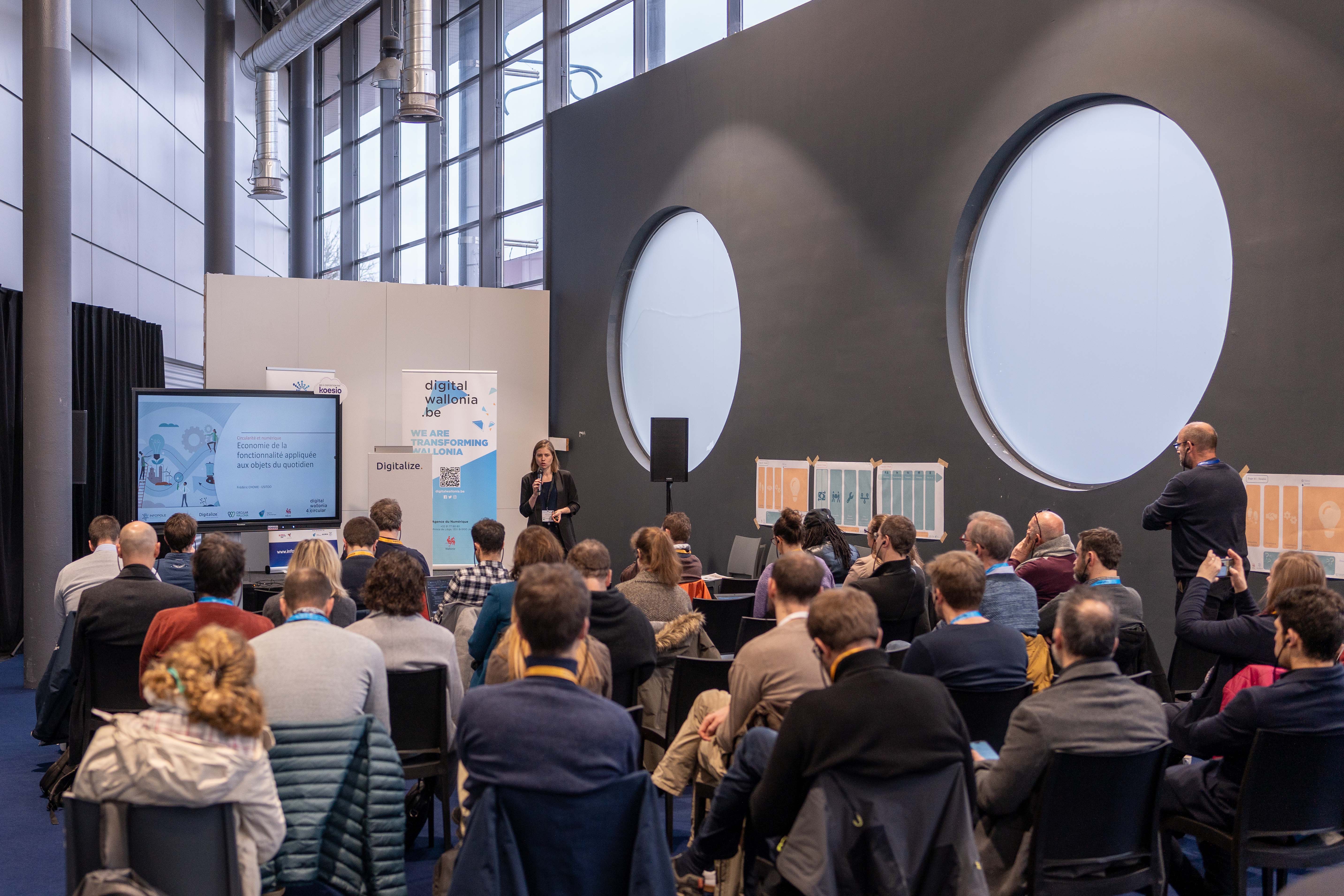
A look back at the "circularity and digital" bootcamp.
Published on 24 February 2023
Publication
On February 3, 2023, the first bootcamp on circularity and digital was held as part of the Digitalize Namur trade fair. Organized by the Agence du Numérique, SPW, Infopole and Swarn as part of the Digital Wallonia 4 Circular program of the Digital Wallonia strategy, the event attracted over forty participants.

Thématique
The ecological transition and digital transformation are two inseparable challenges. Digital tools and usages are sources of innovation and levers or gas pedals for implementing the transition to a circular economy.
To illustrate the implementation of a circular practice, the bootcamp focused on the cross-functional theme of reverse logistics: "How can I optimize my company's use of materials and energy? Digital technology as a gas pedal of the circular economy: illustration with reverse logistics".
The concept of reverse logistics covers all the resources used by organizations to manage the flow of products from end customers to companies, suppliers or third parties. This includes processes for identifying, tracing, sorting, collecting, repairing, storing and transporting returned products.
As logistics enablers, digital tools are proving indispensable for implementing this circular economy practice, as demonstrated by the inspiring testimonials from Usitoo, I-Care and Sagacify :
"Economie de la fonctionnalité appliquée aux objets du quotidien" par Frédéric Chomé,
Usitoo"L'industrie 4.0, un atout pour l'économie circulaire ?" par Pierre Colon, I-care
"AI and circularity: How artificial intelligence technologies can contribute to a transition towards a more sustainable economy" by Arnaud De Decker, Sagacify
Workshops
After attending the conference in the first part of the bootcamp, participants were able to try out the LOTENG (LOw Tech ENGineering) methodology from Swarn, which is based on the 3 pillars of sustainability, resilience and sobriety. This flexible methodology for sustainable innovation breaks down a problem into three key steps: "imagine, critique and realize".
Using a collective intelligence and design thinking approach, participants put this methodology into practice by confronting it with two fictitious business challenges, linked to the circular economy and logistics:
Challenge 1
To propose a solution optimizing the return logistics of "Contain'Autrement", a small company offering B2B rental services for reusable food containers.
Challenge 2
Propose a solution that optimizes or facilitates the maintenance, repair and reuse of heat exchangers leased by "ChaudChezSoi" (economy of functionality), ensuring that users can rely on the heat exchangers to function properly.
Hosted by Swarn, Infopole Cluster TIC et Karno Energy, These workshops enabled participants to co-create around the same issues in a dynamic exchange of ideas. Thanks to the presence of companies interested in the circular economy, others from the digital sector, as well as players from the public sector, participants were able to take advantage of an environment conducive to networking.
To learn more
About the author

Louise Marée